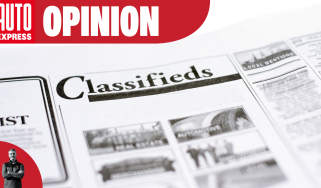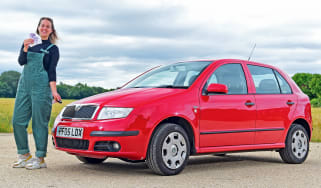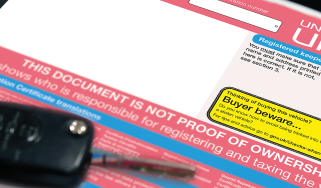What is hire purchase?
Buying a car with a hire purchase deal is often the cheapest way to get into a new car on finance

If you’re going to buy a car on finance then there are three main options to consider: PCP, PCH and HP. It sounds complicated in acronym format but the three options are fairly easy to understand once you know what each one means. In this article we’re going to focus on the latter, which stands for Hire Purchase.
You can read more about Personal Contract Purchase (PCP) and Personal Contract Hire (PCH) in our linked articles, and read on below to find out everything you need to know about Hire Purchase.
What is hire purchase (HP) and how does it work?
A hire purchase (HP) finance agreement is calculated to divide the cost of the car, minus any deposit, into a series of monthly instalments. HP plans tend to require higher monthly payments than some alternatives, but most dealers will offer hire-purchase deals on both new and used cars and vans, which should help to bring down the overall costs. One of the biggest advantages of HP finance is that you will own the vehicle at the end of the contract
These schemes, which are available with every mainstream car maker and some second-hand dealerships, are even available to buyers with poor credit ratings, although it goes without saying that if you know you won't be able to keep up with repayments, you should avoid taking out any finance.
The reason hire-purchase finance is available to more people is because the loan is secured against the car, so that acts as collateral to cover the cost of any missed payments. Two advantages of an HP deal are that the monthly payments will be lower than for an unsecured personal loan (or you can get a higher grade car for the same outlay), and unlike PCP finance there’s no final lump sum to pay at the end.
A deposit will be required to arrange the HP plan, and this is usually around 10% of the car's list price. However, as an incentive to get you behind the wheel, a dealer deposit contribution will offer a reasonable discount on this cost, while models that are nearing the end of their production life could even require no deposit to help shift existing stock. With this kind of deal, though, you may only be able to buy a car from existing stock, rather than speccing up a new model.
Securing the hire purchase loan against the car helps to keep the monthly payments lower, but if you don't make the payments on time, the car could be repossessed.
As with unsecured loans, the hire purchase agreement can be set to run over different monthly repayment terms, but the main difference is that you won't own the car until the final payment is made, rather than owning the car as soon as you've transferred your payment.
Interest rates are fixed for the duration of the HP agreement, so you'll know how much you'll need to pay back every month, and the deals are usually easy to arrange at a dealership or over the phone.
Pros and cons of hire purchase
Pros
- Usually the cheapest form of finance to buy a car outright
- HP debt is repaid more quickly than with a PCP, thereby reducing interest
- Flexible repayment terms
Cons
- High monthly payments
- Not designed for regular car changes
- You don't own the car until you make the final payment
How to get the best hire purchase deal
To get the best deal you should compare several like-for-like hire purchase quotes from different sources. Use the same deposit and contract length as these can dramatically affect the monthly costs. It’s all about how much you can adjust these factors to make things more affordable.
You might be able to see a £100 to £400 per month difference by just varying the contract terms, so it pays to play with the deal terms. Don’t take a deal as-is from a manufacturer without scrutiny as there might be a headline low price in one area but a higher cost elsewhere.
What are the other types of car finance?
The other types of car finance are Personal Contract Purchase (PCP) and Personal Contract Hire (PCH), along with a traditional bank loan.
Personal contract purchase (PCP)
This is a popular type of car finance where you pay a deposit, then a set number of monthly payments before getting a choice: you hand the car back or pay a balloon payment to keep the car.
Personal Contract Hire (PCH)
This is similar to PCP but there’s no option to keep the car at the end. It’s also known as leasing, since it’s essentially a long rental.
Bank loan
This is where you get a loan from a bank for the cash amount and pay off the car in one go. You then owe money to the bank, usually paid back monthly, rather than the finance company associated with the car seller.
Hire purchase FAQs
Frequently Asked Questions
It completely depends on your personal situation, including how comfortable you are with finance, your monthly outgoings and whether or not you want to own the car at the end of the deal or not. If you’re not sure about that last one, PCP is possibly better as it allows you to choose later, but if you really want to own the car then it might be better to just buy it outright. Hire purchase is aimed at those who want to own but can’t afford to pay the full amount upfront.
Click the links below or on the top left of this page to get full guides on each of the key car finance options…
How to pay for your new car
Find a car with the experts









